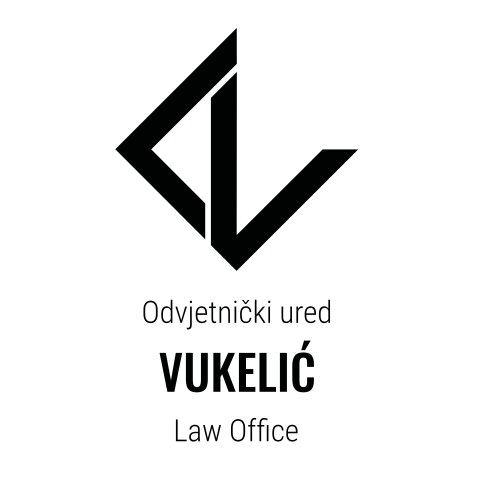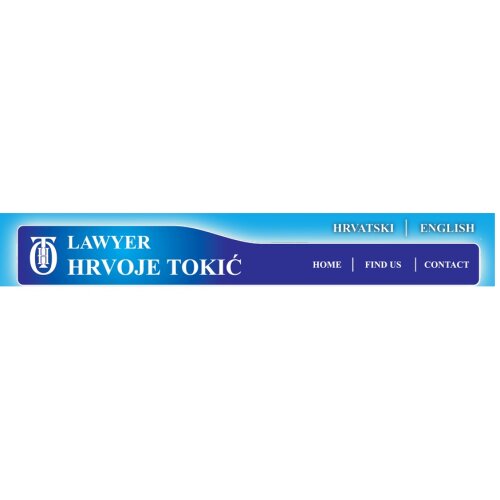Best Administrative Lawyers in Croatia
Share your needs with us, get contacted by law firms.
Free. Takes 2 min.
Or refine your search by selecting a city:
List of the best lawyers in Croatia
About Administrative Law in Croatia
Administrative law in Croatia governs the activities of administrative agencies of government. It encompasses rules, regulations, and procedures governing various state bodies, public institutions, and local municipalities. The administrative framework is designed to ensure transparency, accountability, and efficiency in public administration. Croatia’s administrative law is influenced by both its own legal tradition and its membership in the European Union, contributing to a comprehensive legal environment that oversees public administration actions.
Why You May Need a Lawyer
There are several situations where you may require legal assistance in the field of administrative law in Croatia. These include dealing with matters related to public tenders, permits, and professional licenses. Additionally, if you need to challenge or appeal decisions made by government agencies, or face issues regarding public service employment or access to information under freedom of information laws, a lawyer specializing in administrative law can provide essential guidance and representation.
Local Laws Overview
Croatia's administrative laws are governed by the General Administrative Procedure Act and various sector-specific regulations. Key aspects include:
- Procedures for obtaining administrative acts and decisions.
- Regulations concerning administrative proceedings and appeals.
- Transparency measures for information requests and public expenditures.
- Statutes regarding public service and civil servants.
- Compliance with European Union directives and regulations.
- Provisions dealing with public procurement and tenders.
Frequently Asked Questions
What is the process for appealing an administrative decision in Croatia?
The process involves submitting an appeal to the competent administrative authority, typically within 15 days of receiving the decision. The authority must review the appeal and issue a binding decision based on procedural fairness and legality.
How do I apply for a building permit in Croatia?
You must submit an application to the relevant municipal or city authority, including necessary documentation like architectural plans and proof of property ownership. The process usually involves various checks and clearances.
What legal recourse do I have if my public tender application is rejected?
You may contest the decision by lodging an appeal with the State Commission for Supervision of Public Procurement. This body reviews the legality of the procurement process and decisions.
Are there legal provisions for receiving information from public authorities?
Yes, the Act on the Right of Access to Information ensures that citizens can request and receive information from public authorities, with some exceptions for confidentiality and privacy.
How can administrative law affect my business operations?
Administrative law impacts necessary permits, compliance with regulations, tender applications, and interactions with public officials, affecting several operational aspects of a business.
What rights do civil servants have concerning employment disputes?
Civil servants in Croatia have rights under the Civil Servants Act to contest employment decisions through administrative proceedings or labor courts.
Can I represent myself in an administrative hearing?
While you have the right to represent yourself, it is often advisable to seek legal representation to ensure your rights and interests are adequately protected.
How often do administrative regulations change?
Regulations may change with new legislation or amendments, which can occur frequently due to shifts in policy or alignment with European Union standards.
What role does the Ombudsman play in administrative law?
The Ombudsman protects citizens’ rights by addressing complaints about maladministration and ensuring that authorities comply with the law.
Are there any penalties for non-compliance with administrative regulations?
Yes, non-compliance can result in fines, loss of licenses, or other legal actions, depending on the severity of the violation.
Additional Resources
Anyone seeking further information or assistance may consider the following resources:
- Ministry of Justice and Public Administration - Offers guidance on administrative laws and procedures.
- Croatian Information Commissioner - Addresses issues related to the right to access public information.
- State Commission for Supervision of Public Procurement - Handles disputes regarding public tenders.
- Ombudsman of Croatia - Provides support for fundamental rights issues and administrative disputes.
Next Steps
If you believe you need legal assistance with administrative matters in Croatia, consider the following steps:
- Define your issue clearly and gather any relevant documents or correspondence.
- Consult with a lawyer specializing in administrative law to understand your legal options.
- If necessary, submit any appeals or requests through the appropriate administrative channels.
- Continue to seek legal guidance throughout your dealings with public administration.
- Utilize additional resources and professional advice to navigate complex administrative issues effectively.
Lawzana helps you find the best lawyers and law firms in Croatia through a curated and pre-screened list of qualified legal professionals. Our platform offers rankings and detailed profiles of attorneys and law firms, allowing you to compare based on practice areas, including Administrative, experience, and client feedback.
Each profile includes a description of the firm's areas of practice, client reviews, team members and partners, year of establishment, spoken languages, office locations, contact information, social media presence, and any published articles or resources. Most firms on our platform speak English and are experienced in both local and international legal matters.
Get a quote from top-rated law firms in Croatia — quickly, securely, and without unnecessary hassle.
Disclaimer:
The information provided on this page is for general informational purposes only and does not constitute legal advice. While we strive to ensure the accuracy and relevance of the content, legal information may change over time, and interpretations of the law can vary. You should always consult with a qualified legal professional for advice specific to your situation.
We disclaim all liability for actions taken or not taken based on the content of this page. If you believe any information is incorrect or outdated, please contact us, and we will review and update it where appropriate.
Browse administrative law firms by city in Croatia
Refine your search by selecting a city.

















